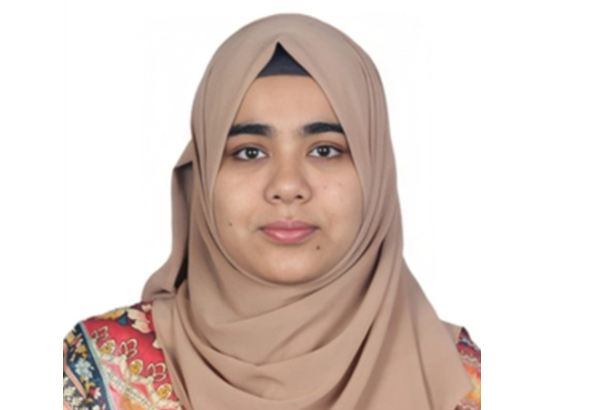Tasfia Mahin
Neo-Marxist Immanuel Wallerstein developed a theory named “world-systems theory” that understandably portrays the core-periphery relations between the Northern hemisphere’s rich countries and the Southern developing and underdeveloped nations in the capitalist world system, where a few business elites rule the world, while exploiting the marginalized and poor majority. In an interview, Noam Chomsky labeled those tycoons as “masters of mankind”, who intervene in the decisions made by the states. Known as the principal greenhouse gas emitters, they value profit-making and the exploitation of resources, undermining climate hazards.
Pakistan faces its most vulnerable monsoon this year as heavy rainfall, landslides, and severe floods wreak havoc in the country, with around 800 people dying. It still endures heavy floods with growing toll when this article is being written. India-administered Kashmir, Thailand, and Bangladesh, too, encountered floods and landslides with adverse effects. Wildfires resurface across the Mediterranean region. China, South Korea, and Japan once again felt the unwanted price of human-induced climate change. As unprecedented wildfires, deadly heat-waves, erratic monsoons, and rising seas ripple, the ever-cycling question shakes the human conscience: Can the world be united against climate change? Or can the global south ever be able to raise its voice effectively, out of geopolitical race and narrow economic interest?
The climate crisis is the defining issue of our time—no longer an impending threat, but a part of our daily realities. But while no corner of the world is untouched, the damage is not distributed equally. The richest nations, the United States, members of the European Union, and China, are responsible for the overwhelming bulk of historical emissions. Meanwhile, the countries of the Global South, which have contributed the least, find themselves on the frontlines of destruction. Wealthy nations dominate the agenda at international negotiations. They make all the important decisions, including how much finance will flow, who will receive technology, and when promises will be honored. Meanwhile, those who suffer the most, the vulnerable countries of the Global South, struggle to have their voices heard. Even the 2015 Paris Agreement pledge to limit global temperature rise to well below 2 degrees Celsius above preindustrial levels is slipping out of reach due to the inaction of developed polluting countries. Studying several industrially advanced and oil-producing countries such as the US, Germany, and Saudi Arabia, Bangladesh Institute of Governance and Management conducted a research published in the Springer Nature and concluded that those countries are not on track to meet their climate commitment, while most of them are far away from the trajectory. The recent Geneva talk on plastic pollution stalled without any deal due to opposition from petrochemical producers and the US. Trump, a businessman, significantly cut climate funding, calling climate change a “hoax”, while at the same time backing fossil fuels, signing an executive order that starts the process of withdrawing the US from the Paris Agreement, and obstructing renewable energy.
Climate justice means holding polluters accountable for the damage caused, ensuring fair access to resources and technology, and defending the right to development. For the Global South, the demand is not only for survival—it is for justice. But there is a catch: while vulnerable countries share these priorities, they are not always united. Internal differences often weaken Global South coalitions. Each country brings its own economic realities, governance structures, and political interests to the table. Some prioritize rapid development through industrialization, others struggle with donor dependency, and still others fear being left behind in the transition to clean energy. These divergences, while understandable, create cracks that wealthier nations can exploit.
Unity among the Global South is essential for effectively challenging wealthier nations. True coalitions require active building through deeper cooperation, inclusive policymaking, and a focus on collective power rather than individual interests, strengthening South-South partnerships. The establishment of the Loss and Damage Fund at COP27 would be an inspiration to succeed. It demonstrated how much can be done with voices that are on the same page and demands that cannot be compromised. It is the way forward that must take place with enhanced cooperation amongst the South, in terms of resources and skills, rather than engaging in a competition in the aid game. Engaging civil society and frontline communities in decision-making, not only the government elites, and going to climate summits with common stances on finance, adaptation, and justice. Furthermore, similar to the Non-Aligned Movement (NAM) during the Cold War era vis-à-vis the USA-USSR bloc politics, we propose the global south to create an association of its own, including severely impacted countries by climate change, to raise a more strengthened and united voice to achieve climate justice.
Climate change is not just about melting ice caps or rising temperatures. It is about people, the millions who risk losing their homes, livelihoods, and cultures to a crisis they did not create. If vulnerable nations stand together, they can reshape global climate governance into something fairer and more humane. If they do not, the future will be written by the few, while billions are left to pick through the wreckage. Communities in Bangladesh will continue to lose their land to the sea, families in Pakistan will keep being driven from their homes by floods, and farmers in Africa, Latin America, and Asia will face devastating droughts and displacement.
Tasfia Mahin
Department of International Relations, Jahangirnagar University, Bangladesh

















